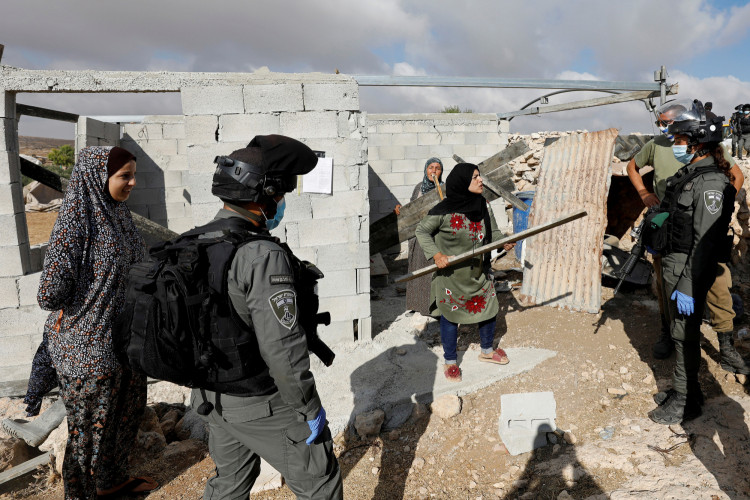Israel has withdrawn a significant portion of its ground troops from southern Gaza, leaving just one brigade in the battered enclave six months after the war began. The move comes as both Israel and Hamas, the Islamist movement that controls Gaza, prepare to send delegations to Egypt for fresh talks on a potential ceasefire.
The Israeli military has been gradually reducing its presence in Gaza since the start of the year, primarily to relieve reservists and in response to growing pressure from its ally, the United States, to improve the humanitarian situation in the region. The pressure has intensified following last week's killing of seven aid workers.
While the military spokesperson did not provide specific details on the reasons for the troop withdrawal or the exact numbers involved, Defence Minister Yoav Gallant stated that the soldiers would be preparing for future operations in Gaza. The remaining Nahal Brigade, consisting of a few thousand soldiers, will be tasked with preventing Palestinians from returning to northern Gaza and conducting "precision" strikes across the territory.
Both Israel and Hamas have confirmed their intentions to send delegations to Egypt for talks. Hamas is seeking an end to the war and the withdrawal of Israeli forces, while Israel has stated that, following any truce, it would aim to topple Hamas, which is sworn to its destruction.
Israeli Prime Minister Benjamin Netanyahu emphasized that there would be no deal without a hostage release and that he would not cave to international pressure. Hamas, on the other hand, insists that any agreement must include freedom of movement for residents across the Gaza Strip.
According to Israeli tallies, more than 250 hostages were seized and approximately 1,200 people were killed during Hamas' Oct. 7 attack. The health ministry in Gaza reports that more than 33,100 Palestinians have been killed in the Israeli offensive.
Around 130 hostages are still being held in Gaza. When asked about the troop withdrawals, Israel's Chief of the General Staff Herzi Halevi told reporters that the military was adapting its methods to what has been and will be a long war. Defence Minister Gallant reiterated that Israel will press on with the war until Hamas no longer controls Gaza or threatens Israel as a military group.
Palestinian residents of the southern Gaza city of Khan Younis, which has come under Israeli bombardment in recent months, reported seeing Israeli forces leaving the city center and retreating to eastern districts. Medics said they found at least 12 Palestinian bodies in the area, and some residents who had been sheltering in Rafah began returning to their neighborhoods after the Israeli troops left.
Imad Joudat, a 55-year-old resident living with his eight-member family in a tent in Rafah, expressed hope for a happy Eid al-Fitr holiday, which starts mid-week. "The occupation withdrew forces from Khan Younis, the Americans are pressuring after some foreigners were killed, and Egypt is holding a big round with the Americans, the Israelis, Hamas, and Qatar. This time we are hopeful," Joudat told Reuters via a chat app.
Israel is facing increased pressure from the United States, with President Joe Biden demanding improvements in humanitarian conditions in Gaza and efforts towards a ceasefire. Biden has also stated that U.S. support could depend on these actions, marking the first time he has sought to leverage U.S. backing to influence Israeli military behavior. The U.S. is a major supplier of arms to Israel.
In addition to the pressure from the U.S., Biden has urged the leaders of Egypt and Qatar to pressure Hamas to agree to a ceasefire and hostage deal ahead of the fresh round of talks in Cairo.






